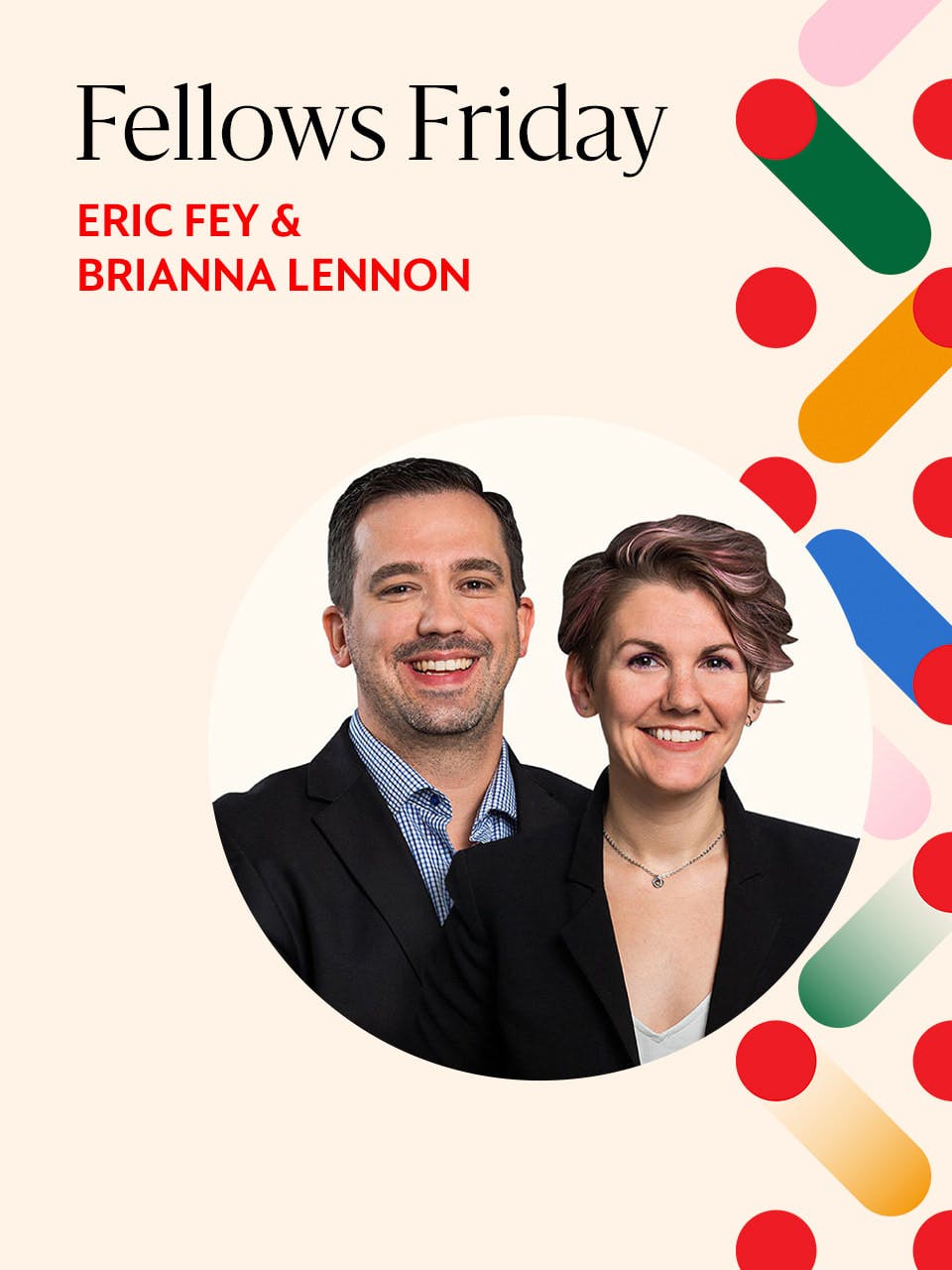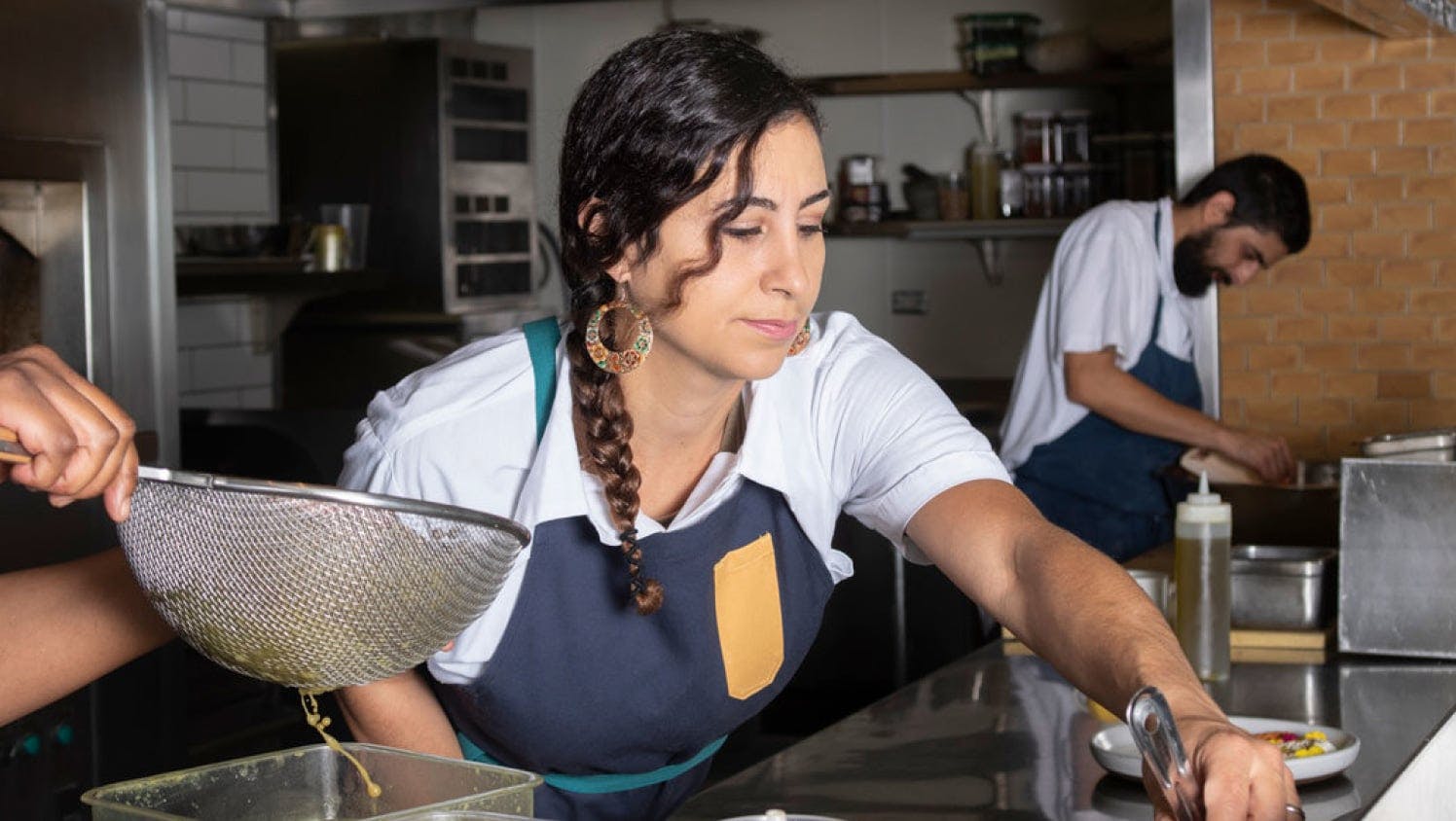
How local election officials make our democracy work
53 min watch
In 2010, Reem Assil was at the doorstep of a street corner bakery in Beirut, Lebanon. The scent of za'atar bread fresh from the oven and sweet orange blossom syrup mixed in the air with Arabic chatter and laughter, conjuring memories of a childhood in the United States spent yearning for home.
It was here Assil realized: this bread was more than just bread. It was a symbol of resilience and hospitality passed across generations of Arabic people ravaged by colonization, war, drought, and famine. After a decade working as a labor and community organizer, leading campaigns for workers rights, living wages, and access to affordable housing, Assil realized she wanted to channel her own community activism through an age-old cultural mechanism: food.
Assil, the Palestinian-Syrian chef and founder of Reem’s California, created her restaurant in 2017 as “a place where Arabs could feel celebrated and proud” in a post-9/11 climate in which many Arab communities faced racism, threats, and attacks. She also saw it as a space for the social justice community to meet, strategize, and share a meal.
During the pandemic, in which the restaurant industry was upended, she has incubated a scalable apprenticeship program, Sumoud (meaning “steadfast resilience” in Arabic), that provides workshops, training, and leadership development to cultivate ownership and self-governance for restaurant workers. Her ultimate goal is to transform her San Francisco and Oakland-based restaurants into worker-owned cooperatives.
Assil, an Emerson Collective Fellow, joined Emerson Collective’s Director of Fellowship and Portfolio Communications Patrick D’Arcy for a Fellows Friday conversation about what it means to radically reimagine the restaurant industry, and how to build more equitable restaurants by empowering food workers.

FELLOWS FRIDAY SERIES: Emerson Collective Fellow Reem Assil talks about what it means to radically reimagine the restaurant industry, and how to build more equitable restaurants by empowering food workers.
I think as someone who yearned for community, I was always drawn to work that is in service of people. In both organizing and food, you're really in service to people. When I first got into activism and organizing, the fact that you could get paid to knock on doors and go into people's homes and have tea with them and ask them about their lives was just transformational for me.
But the systems we were up against were just so immense. There's beauty in people power, but there's also absolute fatigue from the pummeling of capitalist forces—the forces of racism and poverty. I realized I'd lost my own voice and the ability to imagine what we're actually trying to build.
At that moment, I decided to take a break from professional organizing, thinking: "There's got to be other tools. There's got to be other ways to build that resilience in people so that, A, we can fight. But also so that, B, when we get there, to our own liberation, we have something built up that isn't a replication of what we saw before."
And food had always sort of been this for me. I think food is something that connects us to our roots, connects us to who we are – that's why people fight for food justice and food sovereignty. All of us have a right to eat.
I think food is something that connects us to our roots, connects us to who we are – that's why people fight for food justice and food sovereignty. All of us have a right to eat.
There is a lot of unseen, invisible labor that goes into creating the experience that people have when they walk into a restaurant, at every link in the supply chain – from the farmer who is growing your food, to the person who's packaging it, to the person who is delivering that food, to the prep cooks that are prepping that food, to line cooks. And food costs a lot more if you're going to use quality and ethically-sourced ingredients. So if you break down any dish, you're not actually making that much money off of that food. The margins are super, super thin.
So volume is sort of what you have to go for. And we knew this before the pandemic, but it's certainly true now that there is a worker shortage – there are just not enough people who are working in the industry, because people are not willing to accept being paid substandard wages anymore.
The other thing that people don’t realize, especially in the Bay Area, is the overhead of running restaurants. At market rate, you're paying at least $8,000 to $15,000 a month on rent. So if you were making any margin off of your food and your labor, that is going to your rent and to your taxes.
The concept of worker ownership is twofold. One, that your employees get to have a say in the decisions that the business makes – they get a vote and have agency to participate in the process. And two, they have a right to share in the profits from what the business makes. And by nature of having that profit shared among workers, there's sort of a collective approach to the success of that business. It's not just one person looking out for themselves.
Because I was a labor organizer, I saw the power of workers building something for themselves, figuring out what they need and want, and building that confidence. I had been a part of worker co-ops—in fact, I built my baking career working at Arizmendi Bakery in Emeryville. When Reem’s becomes worker-owned, my wish is not for us to be worker-owned on an island, but to spread these models of democracy and empower employees. To build an ecosystem of support.
The people who are most connected to the problem are going to be the ones to come up with the solutions. And that is the workers in the industry, who come primarily from BIPOC communities.
Sumoud was inspired by an Arabic word that we use most often to describe Palestinians and their steadfastness as they work towards liberation. When the pandemic hit, we knew that we were going to need this steadfastness. We knew that we were going to see a recession. We're going to see all of these shocks of disaster capitalism coming our way, and we're going to have to build our resilience—our steadfastness—to be able to build a vision for a better world.
Everybody was asking, "How are we going to change the restaurant industry? How are we going to solve racism in the restaurant industry? How are we going to dismantle patriarchy?" And no one was asking the right people. The people who are most connected to the problem are going to be the ones to come up with the solutions. And that is the workers in the industry, who come primarily from BIPOC communities.
So we wanted to build an apprenticeship program, to learn together. We developed this very ambitious curriculum that in which we set out to understand how food intersects with systems of power and oppression, and then build concrete skills in leadership and effective cooperation.
We started that curriculum in January. We have about 18 people across both Reem’s locations who participate in Samoud. And we've already seen changes in the way they are at work, the way they show up, the way they approach problems. The change and the shift in peoples’ psyches being at Reem's. We hope that by the end of that program, folks will feel motivated and equipped to be a part of a worker buyout group that will determine how the new worker-owned restaurant will run. We have been working on all of this with the help of community partners too, like Project Equity and the Sustainable Economies Law Center.
Arabiyya is really an invitation into my life as an Arab in diaspora, as an organizer—but really as someone who is trying to find purpose. It's a beautiful book featuring the Arab table and food from my life that has influenced who I am as a chef, and as a cook, and as a community organizer, with beautiful illustrations from Cece Carpio, a local artist and amazing muralist here in the Bay Area. It's not traditional. It's cut with five beautiful essays that talk about the journey of my life, and then the food sort of weaves into the stories.
It was a labor of love. It took me two and a half years. And I couldn't have chosen a better time, because I think that in the grief of the upheaval wrought by the pandemic, there was just so much clarity about what is my purpose and where I want to direct my energy. So the book kind of ends at the pandemic—though the story obviously continues, as we continue to build out our own worker ownership model at Reem’s.
I think anybody can pick it up, and cook these recipes. “Arab hospitality is really for everyone,” is kind of the motto. The hope is that you find a little piece in yourself from it.